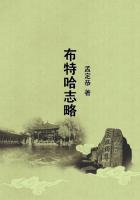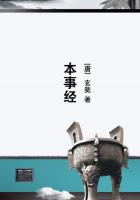HE had ruthlessly abandoned her - that of course was what he had done.Stransom made it all out in solitude, at leisure, fitting the unmatched pieces gradually together and dealing one by one with a hundred obscure points.She had known Hague only after her present friend's relations with him had wholly terminated;obviously indeed a good while after; and it was natural enough that of his previous life she should have ascertained only what he had judged good to communicate.There were passages it was quite conceivable that even in moments of the tenderest expansion he should have withheld.Of many facts in the career of a man so in the eye of the world there was of course a common knowledge; but this lady lived apart from public affairs, and the only time perfectly clear to her would have been the time following the dawn of her own drama.A man in her place would have "looked up" the past - would even have consulted old newspapers.It remained remarkable indeed that in her long contact with the partner of her retrospect no accident had lighted a train; but there was no arguing about that; the accident had in fact come: it had simply been that security had prevailed.She had taken what Hague had given her, and her blankness in respect of his other connexions was only a touch in the picture of that plasticity Stransom had supreme reason to know so great a master could have been trusted to produce.
This picture was for a while all our friend saw: he caught his breath again and again as it came over him that the woman with whom he had had for years so fine a point of contact was a woman whom Acton Hague, of all men in the world, had more or less fashioned.
Such as she sat there to-day she was ineffaceably stamped with him.
Beneficent, blameless as Stransom held her, he couldn't rid himself of the sense that he had been, as who should say, swindled.She had imposed upon him hugely, though she had known it as little as he.All this later past came back to him as a time grotesquely misspent.Such at least were his first reflexions; after a while he found himself more divided and only, as the end of it, more troubled.He imagined, recalled, reconstituted, figured out for himself the truth she had refused to give him; the effect of which was to make her seem to him only more saturated with her fate.He felt her spirit, through the whole strangeness, finer than his own to the very degree in which she might have been, in which she certainly had been, more wronged.A women, when wronged, was always more wronged than a man, and there were conditions when the least she could have got off with was more than the most he could have to bear.He was sure this rare creature wouldn't have got off with the least.He was awestruck at the thought of such a surrender - such a prostration.Moulded indeed she had been by powerful hands, to have converted her injury into an exaltation so sublime.The fellow had only had to die for everything that was ugly in him to be washed out in a torrent.It was vain to try to guess what had taken place, but nothing could be clearer than that she had ended by accusing herself.She absolved him at every point, she adored her very wounds.The passion by which he had profited had rushed back after its ebb, and now the tide of tenderness, arrested for ever at flood, was too deep even to fathom.Stransom sincerely considered that he had forgiven him;but how little he had achieved the miracle that she had achieved!
His forgiveness was silence, but hers was mere unuttered sound.
The light she had demanded for his altar would have broken his silence with a blare; whereas all the lights in the church were for her too great a hush.
She had been right about the difference - she had spoken the truth about the change: Stransom was soon to know himself as perversely but sharply jealous.HIS tide had ebbed, not flowed; if he had "forgiven" Acton Hague, that forgiveness was a motive with a broken spring.The very fact of her appeal for a material sign, a sign that should make her dead lover equal there with the others, presented the concession to her friend as too handsome for the case.He had never thought of himself as hard, but an exorbitant article might easily render him so.He moved round and round this one, but only in widening circles - the more he looked at it the less acceptable it seemed.At the same time he had no illusion about the effect of his refusal; he perfectly saw how it would make for a rupture.He left her alone a week, but when at last he again called this conviction was cruelly confirmed.In the interval he had kept away from the church, and he needed no fresh assurance from her to know she hadn't entered it.The change was complete enough: it had broken up her life.Indeed it had broken up his, for all the fires of his shrine seemed to him suddenly to have been quenched.A great indifference fell upon him, the weight of which was in itself a pain; and he never knew what his devotion had been for him till in that shock it ceased like a dropped watch.Neither did he know with how large a confidence he had counted on the final service that had now failed: the mortal deception was that in this abandonment the whole future gave way.












